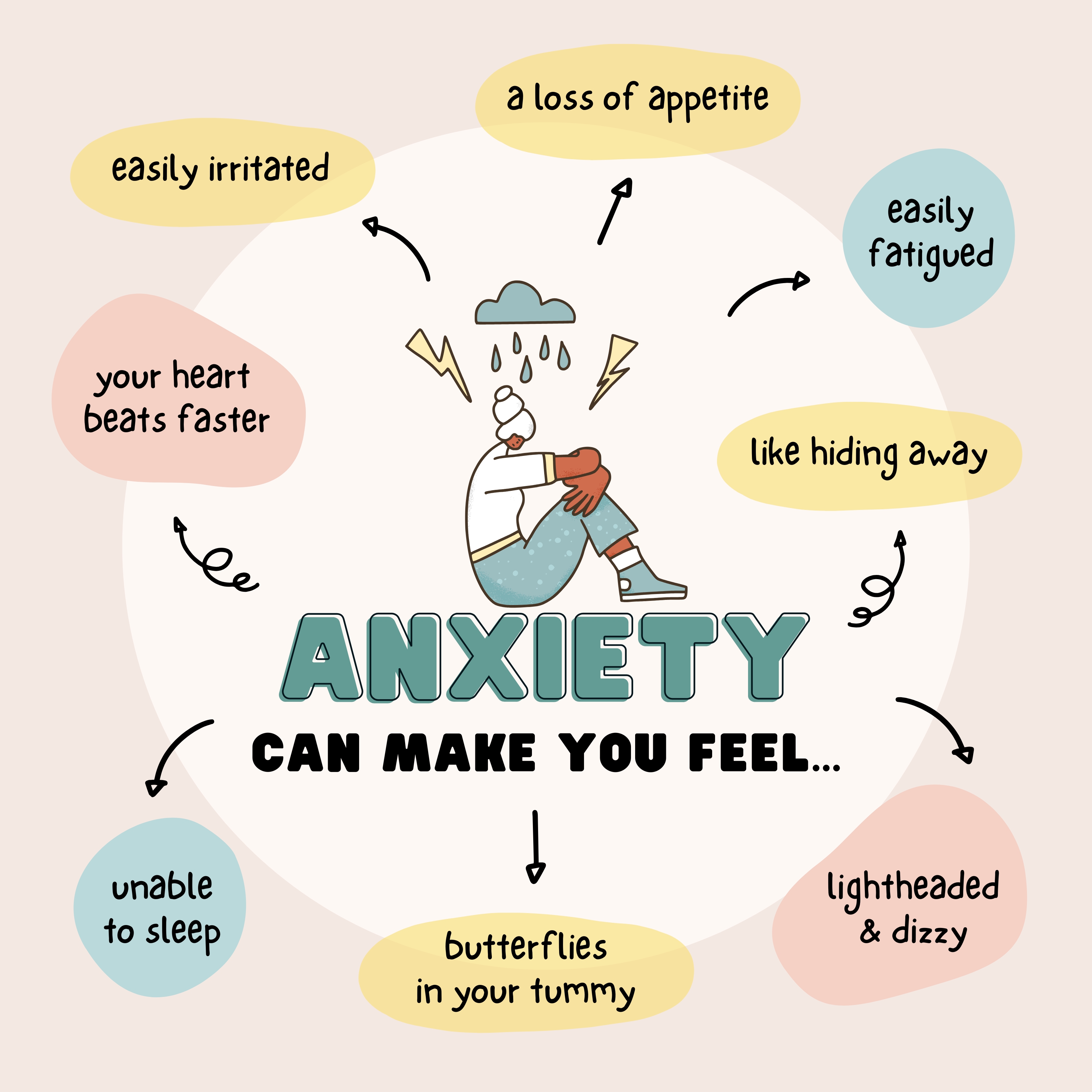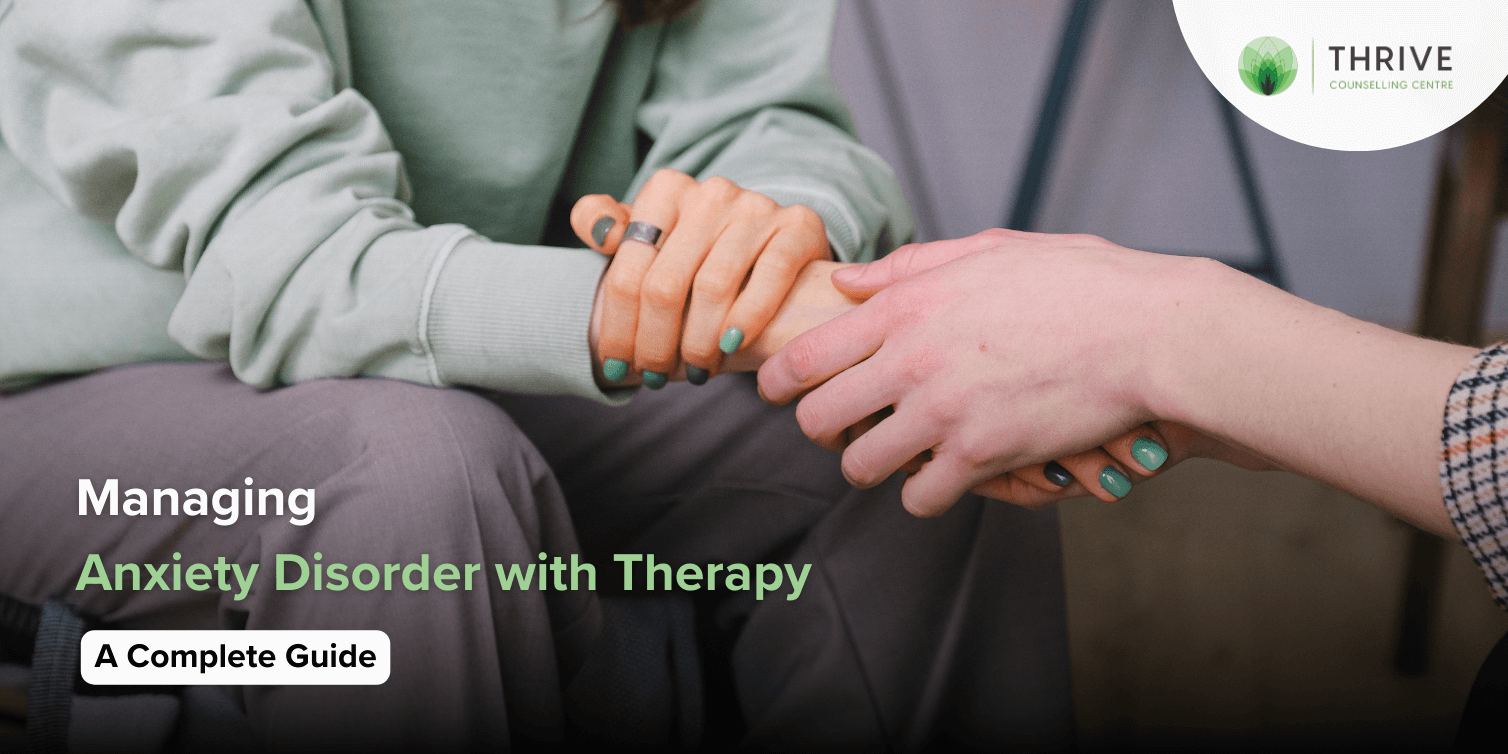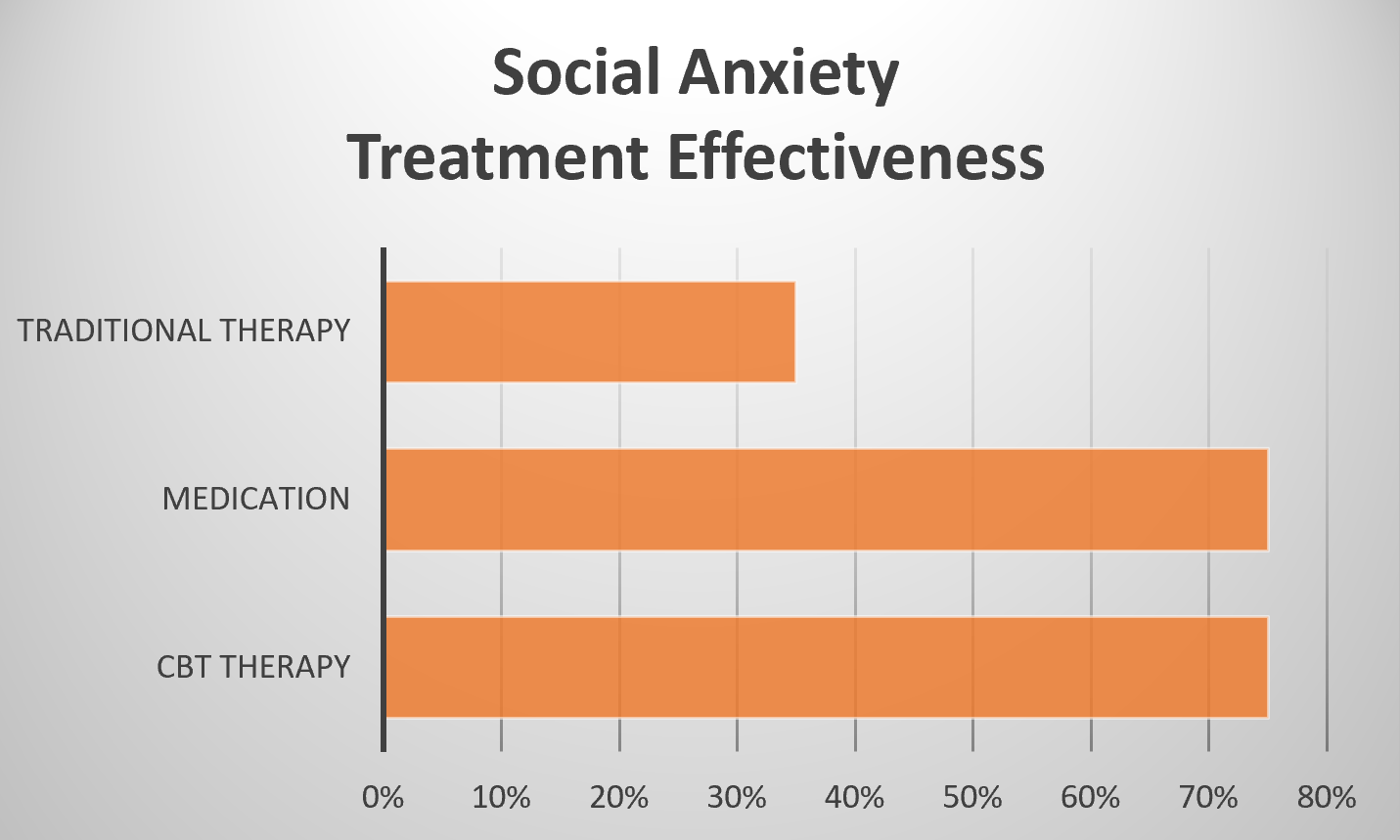How a licensed therapist for anxiety can help you handle daily stress
How a licensed therapist for anxiety can help you handle daily stress
Blog Article
Exploring Various Strategies in Therapy for Anxiety Condition for Long-term Adjustment
When dealing with stress and anxiety disorders, it's important to explore a variety of counseling methods. Each technique uses one-of-a-kind insights and tools to aid you handle your symptoms successfully. You may find that incorporating strategies can generate the very best results. Nonetheless, understanding the nuances of these techniques is key to fostering lasting adjustment. Suppose the right mix could launch a new degree of emotional well-being for you?
Understanding Stress And Anxiety Problems: A Quick Review
Anxiety disorders, which affect millions of individuals worldwide, can greatly affect day-to-day live. You might experience frustrating sensations of worry or stress that seem irrepressible. These feelings can lead to physical symptoms like an auto racing heart, sweating, and even dizziness. Common kinds of anxiousness conditions include generalized anxiousness disorder, panic attack, and social anxiety problem. Each has one-of-a-kind indicators, however they all share a tendency to disrupt your regular and relationships.Understanding the origin of your anxiety is important. It could come from genes, brain chemistry, or life experiences. Identifying your triggers can help you handle your reactions much better. It is very important to keep in mind that you're not the only one in this battle. Lots of people encounter similar obstacles, and seeking assistance is a solid action toward feeling better. By finding out regarding anxiousness disorders, you're already on the path to understanding and handling your problem more successfully.
Cognitive-Behavioral Treatment: Challenging Negative Thought Patterns
In Cognitive-Behavioral Therapy, you'll begin by determining the adverse thought activates that add to your anxiety. You'll function on changing them with even more favorable alternatives once you acknowledge these thoughts. Together, you'll develop efficient coping techniques to assist handle your anxiousness in day-to-day scenarios.
Identifying Unfavorable Idea Triggers

Acknowledging the certain triggers behind your unfavorable ideas can be necessary in taking care of anxiousness when you come across minutes of distress. Begin by taking note of scenarios that prompt feelings of concern or worry. Is it a congested room, an approaching deadline, or a discussion with particular individuals? Take down these instances in a journal. This will help you identify patterns in your thinking. Additionally, notification physical feelings that accompany your unfavorable thoughts, like an auto racing heart or rigidity in your upper body. By pinpointing these triggers, you obtain understanding into what's fueling your anxiousness. Comprehending these links is the first step in testing those thoughts and ultimately restoring control over your emotional responses.
Replacing Thoughts With Positives
Testing negative idea patterns is an important action in transforming your way of thinking and decreasing anxiousness. You may commonly locate yourself caught in cycles of insecurity or catastrophic thinking. As opposed to allowing these ideas dictate your feelings, technique replacing them with positive affirmations or practical alternatives. For example, when you think, "I can't handle this," move it to, "I can take care of challenges one action at once." This straightforward change can substantially affect your mood. On a regular basis determining and responding to these negative ideas helps create a healthier interior dialogue. Keep in mind, it requires time and initiative, however regularly practicing this technique can result in long-term change, empowering you to face anxiety with restored self-confidence and strength.
Building Coping Techniques With Each Other
Changing negative thoughts is just the beginning of managing anxiety efficiently. To develop long-term adjustment, you need to construct coping approaches that encourage you. Cognitive-Behavioral Treatment (CBT) assists you recognize and challenge those unhelpful idea patterns. With each other, you and your counselor can check out exactly how these thoughts influence your sensations and behaviors.Start by creating functional strategies, like journaling or mindfulness exercises, that enable you to face stress and anxiety head-on. When you face your fears slowly, you'll find out to react in different ways.

Mindfulness and Acceptance-Based Approaches: Growing Present-Moment Understanding
As you browse the intricacies of anxiousness, integrating mindfulness and acceptance-based strategies can significantly improve your ability to grow present-moment recognition. By focusing on the right here and currently, you'll discover that you can observe your ideas and feelings without judgment (Counseling services for anxiety). This practice helps you acknowledge your anxiety without really feeling bewildered by it.Engaging in mindfulness workouts, such as deep breathing, body scans, or directed meditations, enables you to ground yourself in your current experience. Acceptance-based approaches urge you to welcome your emotions as opposed to fight against them. They shed their power over you.Incorporating these methods into your daily regimen can change just how you react to anxiety when you accept your sensations. You'll develop durability and learn to navigate demanding scenarios with better simplicity. Inevitably, growing present-moment understanding lays the foundation for long-term change, encouraging you to lead a more satisfying life
Exposure Treatment: Facing Anxieties Gradually
Direct exposure treatment assists you challenge your fears in a steady means, making it much less overwhelming. You'll discover techniques to face anxiety-provoking circumstances detailed, while also developing coping methods to manage your responses. This approach equips you to take control and reduce anxiety in time.
Progressive Direct Exposure Techniques

When encountering anxiety, slowly facing your anxieties can be a powerful way to regain control. This technique, referred to as gradual exposure, includes slowly revealing on your own to the circumstances or things that cause your stress and anxiety. Beginning with less daunting scenarios and progressively function your way approximately even more difficult ones. For instance, if you hesitate of public speaking, you could begin by speaking before a mirror, then progress to sharing thoughts with a buddy, and at some point deal with a small team. Each step assists desensitize you to the worry, building your confidence with time. Bear in mind, it's vital to rate on your own and commemorate tiny victories as you relocate with this process, reinforcing your capability to take care of anxiety properly.
Building Coping Strategies
Building effective coping methods is important for taking care of stress and anxiety, especially as you face your concerns progressively - Counseling services for anxiety. One effective approach is direct exposure treatment, where you begin by facing your concerns in a controlled way. Start with much less daunting circumstances and slowly function your way approximately more challenging situations. This steady direct exposure assists desensitize you to anxiety triggers, making them less overwhelming.Incorporate leisure techniques, such as deep breathing or mindfulness, to relax your mind during direct exposure. Track your progress, celebrating tiny success along the road to boost your confidence. Keep in mind, it's all right to take your time; the objective isn't perfection however consistent renovation. By constructing these approaches, you'll encourage yourself to navigate anxiousness and welcome life much more completely
Psychodynamic Treatment: Uncovering Root Reasons of Stress And Anxiety
Psychodynamic treatment checks out the subconscious mind, disclosing the source of your stress and anxiety. By examining your ideas, feelings, and past experiences, this technique helps you reveal underlying disputes and unresolved concerns that may add to your present stress and anxiety. You'll deal with a specialist to examine childhood experiences, partnerships, and emotional patterns that form your reactions today.As you gain understanding into these much deeper layers of your psyche, you'll start to identify exactly how previous events affect your present actions. This understanding can result in catharsis, allowing you to refine you can find out more emotions you might have suppressed.Through the therapeutic partnership, you can likewise recognize defense reaction that may have established over time, using a more clear path to alter. Inevitably, psychodynamic therapy outfits you with the devices to address your anxiety at its core, promoting long-term change in your emotional health.
Integrative and All Natural Strategies: Integrating Methods for Greater Efficiency
Integrating different healing strategies can improve your trip towards taking care of anxiety better. By combining components from cognitive-behavioral treatment, mindfulness practices, and holistic techniques, you can produce a personalized technique that addresses your special demands. For circumstances, you could use cognitive-behavioral techniques to challenge negative thought patterns while incorporating mindfulness exercises to ground yourself in the here and now moment.Additionally, exploring holistic practices such as yoga or meditation can promote leisure and reduce anxiety symptoms. This mix permits you to create higher self-awareness and resilience.Experimenting with these diverse methods can help you uncover what reverberates most with you. Keep in mind, it's regarding finding a harmony that functions, rather than sticking to a solitary strategy. This integrative method not only offers prompt alleviation but also cultivates long-lasting skills for managing anxiety, empowering you to redeem control over your life.
The Function of Support Equipments: Structure Durability Through Connection
While it might appear that managing anxiousness is a singular journey, having a solid support system can play a vital role in your strength. Surrounding on your own with empathetic friends, family members, or support teams creates a secure space where you can honestly share your experiences and sensations. When you get in touch with others, you advise yourself that you're not the only one in this struggle.These relationships use motivation and Get the facts can provide functional coping strategies that have actually functioned for others. It's likewise a chance to acquire viewpoint; good friends can help you see circumstances differently, reducing sensations of isolation.Moreover, emotional support fosters a sense of belonging, which can substantially minimize stress and anxiety signs and symptoms. By leaning on your assistance system, you can build durability and take on obstacles better. Bear in mind, connecting for help suggests stamina, and it can make all the distinction in your trip towards taking care of anxiousness.
Regularly Asked Questions
What Are the Common Signs of Stress And Anxiety Conditions?
You could experience uneasyness, exhaustion, problem concentrating, irritation, muscle tension, and sleep disturbances. Physical signs can consist of rapid heart beat, sweating, and shivering. Acknowledging these indications early can assist you look for appropriate assistance and therapy.
How Much Time Does Treatment Generally Last for Anxiety Disorders?
Therapy for anxiety disorders typically lasts anywhere from a few weeks to numerous months. It actually relies on your private requirements, progress, and the techniques your specialist makes use of to assist you manage your anxiety properly.
Can Medication Be Used Along With Treatment for Stress and anxiety?
Yes, medicine can most definitely be utilized together with therapy for anxiety. Combining both strategies usually improves treatment performance, aiding you take care of symptoms while exploring underlying issues through counseling (Counseling services for anxiety). Always consult your doctor for tailored advice
Are There Self-Help Strategies for Managing Anxiety?
Yes, there are numerous self-help methods for managing anxiousness. You can practice mindfulness, participate in routine workout, preserve a well balanced diet plan, establish a regular, and make use of deep breathing techniques to help in reducing anxiousness symptoms successfully.
How Do I Know if I Need Specialist Assistance for Anxiety?

Report this page